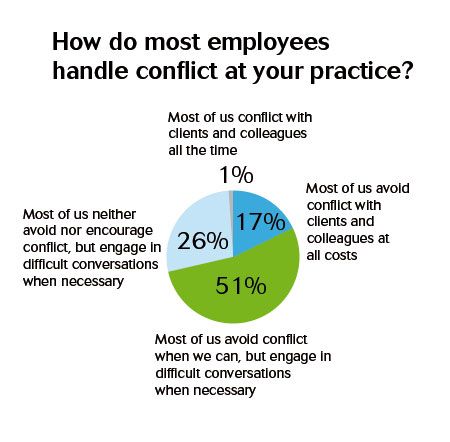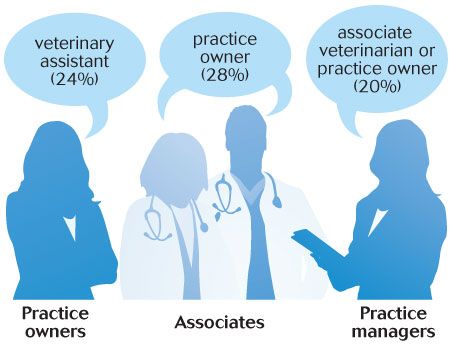Too many conflicts in your veterinary practice?
Wondering how you can create a workplace culture that cuts down on, or eliminates, gossip? Learn what consultant Shawn McVey and your colleagues say about conflict in their practice.
Next >
Shawn McVey, MA, MSW, owner of McVey Management Solutions in Austin, Texas, and a Veterinary Economics Editorial Advisory Board member, says most people avoid conflict because it’s easier in the short term but it’s not the best practice.
“It’s like exercising—people want the better body but they have to get through the tough workouts first,” McVey says. “It’s the same with conflict resolution. To get the results you want, you have to do the work to get to an agreement.”
McVey says you can start conflict resolution right by using “I” language.
“Don’t say, ‘You make me mad when … ’ Instead, say, ‘When I see that happening, I get mad,’” says McVey.
Try to solve your problems without bringing in a supervisor. If that’s impossible, tell the person you’re fighting with that you’re going to bring someone else into the equation so it doesn’t seem like you’re tattling on your coworker. But if you’re a supervisor and you witness the conflict, step in right away to solve the problem.

Four percent of respondents answered 'other.' Here are some of their explanations:
- Staff complain to the wrong people.
- Staff meetings and intervention by HR manager
- Most of us avoid conflict and when they arise it just tends to be gossiped about instead of dealt with.
- Whenever available, I take care of the client conflicts. The office manager takes care of the employee conflicts.

Top 3 most damaging sources of workplace conflict, according to respondents of the 2013 Veterinary Economics Business Survey:
- Staff not fulfilling job responsibilities
- Staff gossiping about colleagues
- Managers distributing help and other resources unfairly among staff members

How can you create a workplace culture that cuts down on, or eliminates, gossip?
Shawn McVey’s advice: This is accomplished through creating core values that reflect this belief and creating policies and rules that allow for consequences. What is tolerated will never change. When people “slip” into gossip and character assassination, it should be treated as any other insubordinate act. Once team members know that you will hold them accountable, they will change.